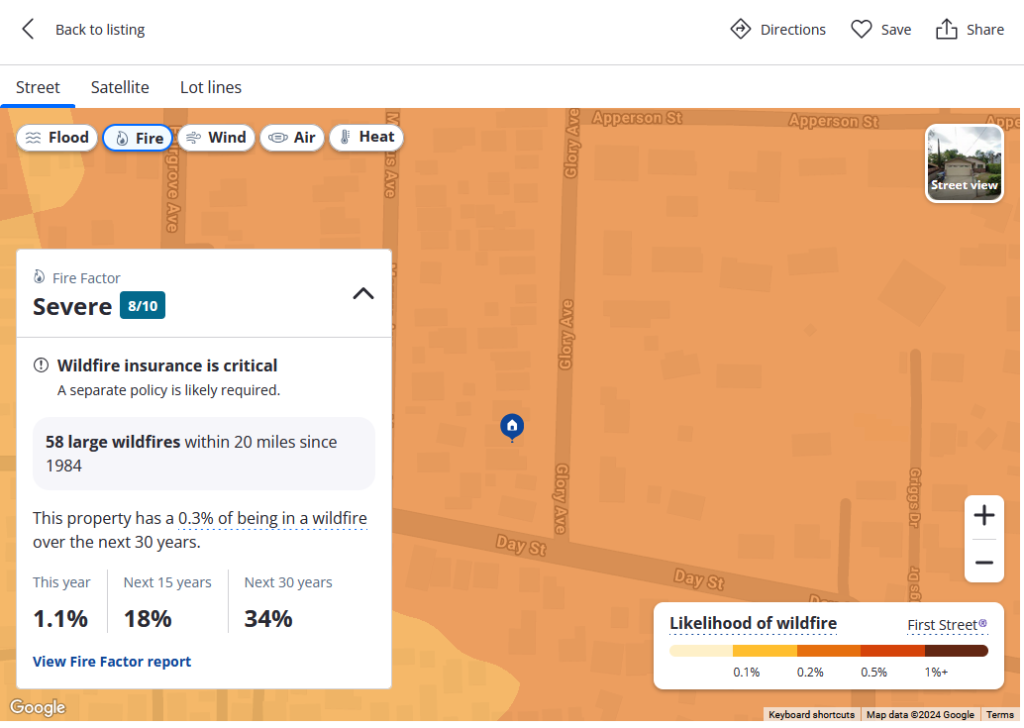Real estate listings on platforms like Zillow now offer details about a property’s climate risks and whether natural disaster insurance is necessary. These listings provide information on potential risks such as floods, wildfires, high winds, extreme temperatures, and poor air quality, as well as historical data on floods and wildfires. The climate data is provided by analytics firm First Street. Zillow’s chief economist, Skylar Olsen, stated that this tool helps agents inform their clients about climate risk, insurance, and long-term affordability amid growing concerns about flooding, extreme temperatures, and wildfires.
Insurance providers have been increasingly withdrawing from riskier markets, such as fire-prone areas of California and parts of Florida vulnerable to hurricanes. They have also stopped covering specific categories of natural disasters. While the Zillow listings do not offer specific insurance company recommendations or cost details, they do inform buyers about the climate risks associated with a property. Redfin, another real estate company based in Seattle, also includes climate risk information in its listings.
Survey results released by Zillow last year indicated that 83% of prospective home buyers take climate risk into consideration when looking for a home, with younger shoppers showing the most concern about climate impacts. Despite these concerns, only 23% of those surveyed said they would consider moving to an area with lower climate risks. Additionally, a study by Redfin found that Americans are actually moving to areas more prone to climate disasters, rather than avoiding them.
One of the challenges in dealing with climate risk is the reliability of the predictions. A Bloomberg investigation found that different organizations and models, including First Street, produced varying results regarding which properties are most at risk of floods and fires. This discrepancy in predictions highlights the complexities and uncertainties of assessing climate risk when buying a home. It is crucial for buyers to be informed about the potential risks associated with a property, especially as insurance providers are increasingly pulling out of riskier markets.
As concerns about climate change continue to grow, it is essential for prospective home buyers to consider the climate risks associated with a property before making a purchase. The inclusion of climate risk information in real estate listings on platforms like Zillow and Redfin provides valuable insights for buyers, helping them make more informed decisions. By being aware of potential risks such as floods, wildfires, high winds, extreme temperatures, and poor air quality, buyers can better prepare for the future and ensure the long-term affordability of their investment. Ultimately, understanding climate risks when buying a home is crucial in today’s changing environment.


